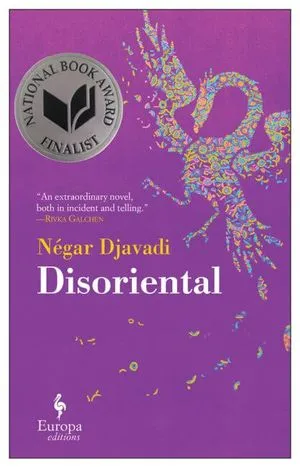
8 Intergenerational Family Sagas to Dig into This Winter
As we enter what’s sure to be a long, uncertain winter, we are also entering a time that I like to call “long night, long book” time: the time of year when I am mysteriously drawn to long, twisting historical fiction sagas or classics, when I’m ready and excited to dive into a narrative that will occupy my mind and heart for a longer time than the average book. So I’m sharing that love with you. Want to dive into intergenerational family sagas this winter? Want to bury yourself in an epic that spans decades, that tells of trauma and heartbreak over the years, of love and family breaking apart and coming together? These eight brilliant novels of historical fiction, telling the sweeping tales of families over the generations, might just be for you.

The Thorn Birds by Colleen McCullough
This family epic tells the story of the Clearys, a family who comes to live on a relative’s prospering Drogheda estate in the Australian outback. It centers on resilient redhead Meggie. Despite being 673 pages, it flew by—this is a book about survival in the face of natural disaster, death, and grief; the characters are compelling and complex, and McCullough’s writing is excellent. By the end of the book, I found it difficult to say goodbye to the characters, and each tragedy, from accident to wildfire, truly hit me like a ton of bricks. This classic continues to be a favorite.
Pachinko by Min Jin Lee
A finalist for the National Book Award, this superb work of historical fiction tells the story of four generations of a Korean immigrant family that settles in Japan in the early 1900s. From then to the 1980s, the family struggles to succeed, and Lee’s excellent writing and balance of long, flowing paragraphs paired with short abrupt stunners of sentences take the reader by surprise. The heart of the story is Sunja, a mother who has given everything she has to keep her sons alive, a stubborn survivor in every way.

Salt Houses by Hala Alyan
Poet and novelist Alyan has written a lyrical, beautiful book telling the story of several generations of Palestinians from 1967 to the present, a tale of displacement, loss, and children growing up. It all starts with Salma reading the coffee dregs of her daughter Alia and lying about what they predict: that the family will scatter from Jaffa to Nablus to Kuwait City to Paris, Beirut, and Boston. It’s a character-driven narrative about trauma, heritage, and family, and was one of my favorite reads of the past few years.
White Teeth by Zadie Smith
Zadie Smith is an icon, and White Teeth is a classic. The novel begins with two couples—Archie and Clara and Samad and Alsana—connected by the husbands’ experiences of the war. The novel then trails slowly into the stories of the couples’ children, stories that are haunted and nuanced by their parents’ own choices and mistakes. Smith weaves issues of generational difference—of religion, immigration, racism, pregnancy, love—through the narrative, threading humor throughout to emphasize the absurd and often sad comedy of day-to-day life.

Caramelo by Sandra Cisneros
As Lala Reyes and her family take their annual trip down from Chicago to Mexico City to stay with the Awful Grandmother and Little Grandfather, Lala observes the city around her, and in doing so dives into the myths, legends, and stories of her family—of her grandmother’s life, of her mother’s story, of her own coming of age. Cisneros is a brilliant writer, and this novel about storytelling and generational memory was the perfect read for me—I read it while traveling in Mexico City. It’s a story of sexism, love, and struggle, as well as the family’s life in Mexico City and as Mexican Americans in Chicago.
Homegoing by Yaa Gyasi
Gyasi is a wonder—her writing is deliberate and beautiful. In these 305 pages, she tells a family epic: two half-sisters are born of a woman of fire, and the novel follows each family line down the generations—one half-sister’s ancestors are haunted by water, the other by dreams of fire. Gyasi covers decades of history all rooted in the family saga and epic, tragedies and triumphs, binding in tales of a gay Fante man, of a free man imprisoned and set to work in the coal mines. Gyasi’s novel—her debut—was an astonishing statement: Yaa Gyasi had come into the world of literary fiction, and she was here to stay, as she’s proven with 2020 release Transcendent Kingdom.

Disoriental by Négar Djavadi, Translated by Tina A. Kover
This book, translated from its original French, is the intergenerational story of the Sadr family, and is heavily inspired by Djavadi’s own experiences. In this novel, the queer, punk rock–loving Kimiâ is sitting in the waiting room of a Parisian fertility clinic, and her mind dips and swirls through the tales of her family—from her strange Uncle Number Two to her formidable grandmother, to the fear and violence her parents faced. The webbed family saga is a sweeping tale of Iranian history, culture, and politics, all rooted deeply in emotion and the complexity of the individual characters.
The House of the Spirits by Isabel Allende, Translated by Magda Bogin
This swirling classic of magical realism, and the book that was Allende’s debut, centers around three generations of the Trueba family, led by tumultuous and arrogant Esteban and the ethereal matriarch Clara. Decades of surreal happenings, tragedies, violence, and moments of happiness follow, blending history with magic. When I saw the snarky, magnificent Allende at an event hosted by my local bookstore in 2017, she told us that she began La casa de los espíritus in a letter to her grandfather on January 8, 1981, and that since then she makes a point of starting every one of her novels on that same day.





